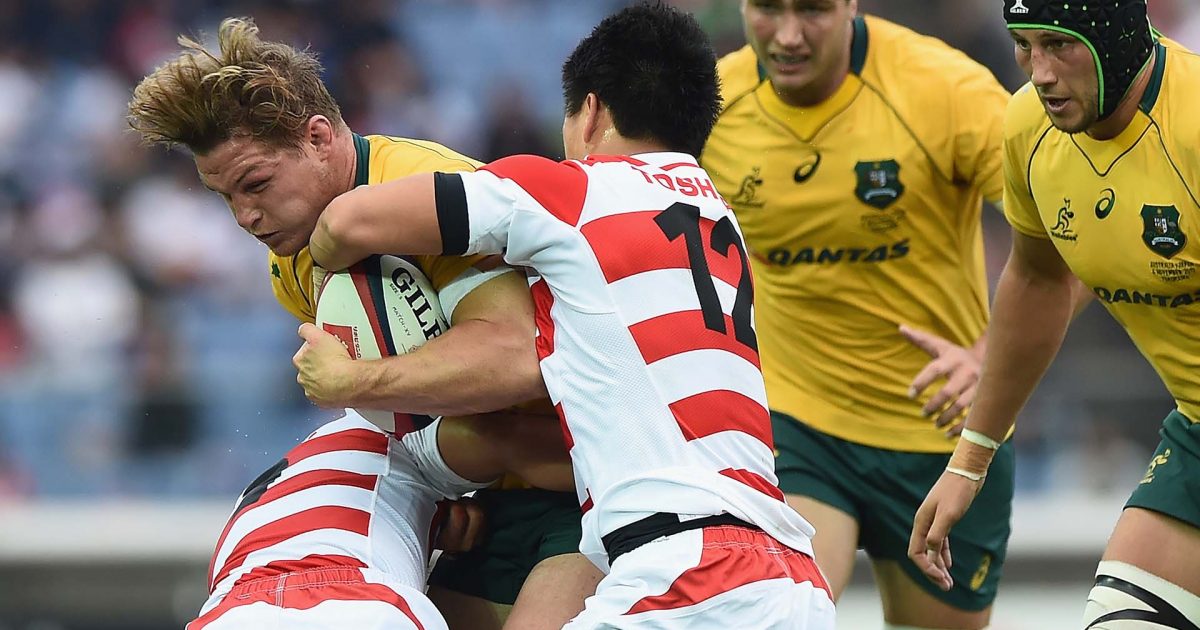How the Wallabies plan to avoid becoming the latest victims of Japan

Already out of their comfort zone, the Wallabies are bracing for a high-octane start to their first spring tour in four years on Saturday.
Chasing five straight test wins for the first time since the 2015 Rugby World Cup, the Wallabies won’t be taking Japan lightly in a rare and challenging lunch-time kick-off in Oita.
Quarter-finalists as hosts at the 2019 World Cup, the Brave Blossoms have rapidly emerged as a tier one force with stirring victories over South Africa, Ireland and Scotland in recent years.
Well-coached by Kiwi Jamie Joseph, the Asian surprise packets crave another big scalp and Wallabies captain Michael Hooper is all too aware.
“They have been a force that’s been growing quite quickly, certainly from 2015 onwards and they obviously had a great showing in 2019 and a few really solid performances this year,” Hooper said on Friday.
“They play a high-tempo game. They want ball in play, they’ll look to run things a lot. They’ve got some really good athletes; a mobile team.
“It will be a real challenge to nullify that speed and to take them to some places that they’re uncomfortable with.
“There’s no joke, the Japanese are a solid team with threats across the board.”
Accustomed to night matches, Saturday’s clash will kick off at 1.45pm local time (3.45pm AEDT) at the spectacular Showa Denko Dome.
“It’s going to be new for some of our guys,” Hooper said.
Japan are chasing their first-ever win over the Wallabies… Would you bet against them in Oita? #JAPvAUS #BraveBlossoms #Wallabies #RugbyJP pic.twitter.com/R6Ty9OUq7S
— RugbyPass (@RugbyPass) October 21, 2021
“For a lot of us who have played up here in Japan, it’s the norm.
“What’s unique about it is, you wake up and have breakfast and then the pre-game meal is about an hour or two later.
“So just getting an understanding about how that features in each guy’s preparation. We’re all different and guys will like to do it differently.
“So we need to have a plan around that.”
After Japan, the Wallabies take on Scotland, Eddie Jones’ England and Wales in successive weeks.
Hooper said the northern hemisphere trek will be invaluable for Dave Rennie’s squad, especially the less experienced tourists.
“We just played four games at home. Now we’re out of our own backyard. We’re going to go and play in some of the great stadiums around the world, the skipper said.
“A lot of our younger players haven’t had that experience before so certainly two years out from a World Cup up in that part of the world, it’s a really good experience for our group.
“These four games present us with a chance not only to build our game and see how we can grow and develop but also play some different styles of rugby that we haven’t been exposed to for quite a while.
“Put ourselves up against that and playing away from home is so critical in test footy.”
Listen to the latest episode of the Aotearoa Rugby Pod below:



































































